Simon Thacker: Discovering the Music within Him
by Susan Frances
Jazz trumpet player Miles Davis was once quoted as saying, “Man, sometimes it takes you a long time to sound like yourself.” For Scotland’s born and bred guitarist, Simon Thacker, he always strives to sound like himself, discovering the music inside his mind and transcribing his voice into a composition. Over two decades, Thacker has accumulated a sizable number of recordings, each unique and entirely freshly spun.
He shares, “From my earliest memory; music was very much an obsession. I remember receiving a tiny cassette tape player around the age of 3 or 4 and only having two tapes (the Beach Boys and the Wombles!) but playing them constantly. My tape collection did expand to preserve everyone’s sanity!”
“At some point soon after,” he recalls, “I was given a mini-drum kit, but I managed to destroy it! I was too young for that kind of discipline, perhaps. Through primary school, I had come to love the playing of AC/DC’s Angus Young, Jimi Hendrix, Heavy Metal, then Guns N’Roses happened…I dabbled a little in guitar at the end of primary school as there were some very basic lessons, but there was something missing: the guitar was upside down for me as I was left-handed!”
He remembers, “It wasn’t until a local plumber, who played in a pub cover band, re-strung a classical guitar for me that I could start to get some sounds that made sense out of it. I remember getting Jimi Hendrix’s Radio One album out of the library (on cassette) on the day I got the re-strung guitar, and it was halfway through a side when I pressed play. ‘Hoochie Coochie Man’ came on, and I started playing along (I thought!) pretty accurately to the main riff straight away. I was hooked.”
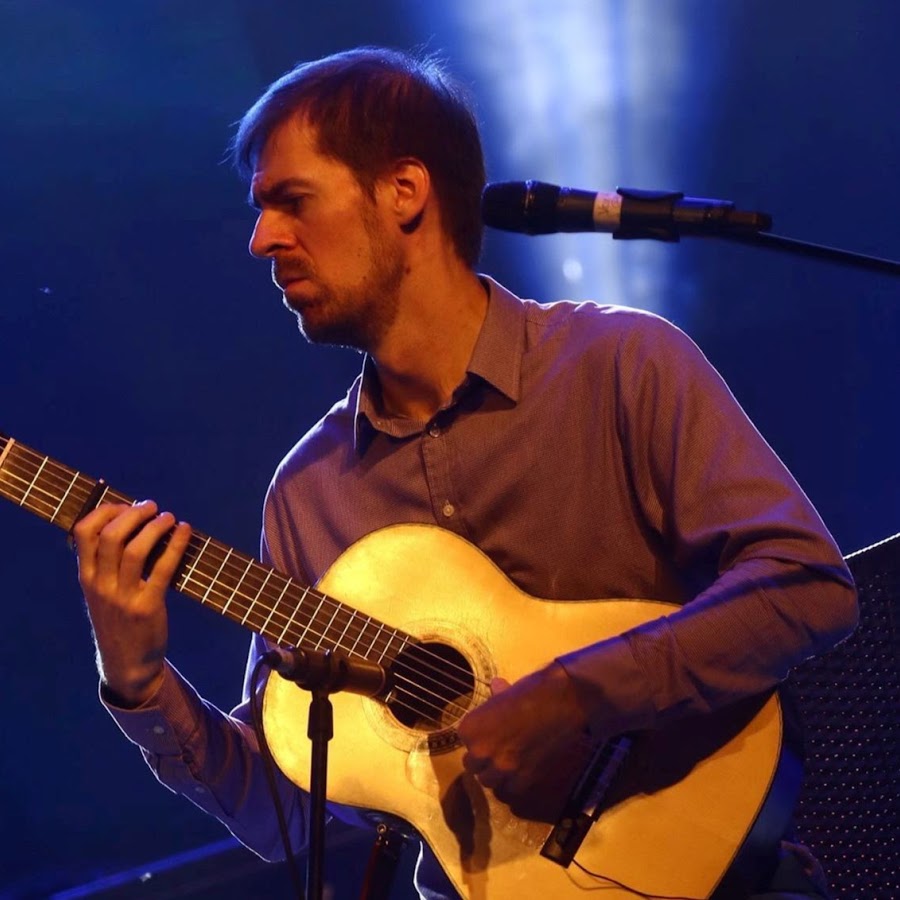 A quality that Thacker and Hendrix have in common is that they each personalize their music, exploring the wild streak inside themselves that bucks conventional chord patterns and mainstream music. Hendrix had captured a beauty found in the electric guitar’s feedback and distortion. Thacker treads along a similar path with his improvisations, finding beauty in dissonance and abstract timbres.
A quality that Thacker and Hendrix have in common is that they each personalize their music, exploring the wild streak inside themselves that bucks conventional chord patterns and mainstream music. Hendrix had captured a beauty found in the electric guitar’s feedback and distortion. Thacker treads along a similar path with his improvisations, finding beauty in dissonance and abstract timbres.
“The search for transcendence in the moment of duende is something I seek,” he reflects. “The truth, purity, and rawness of emotion. Singers like Manolo Caracol, La Niña de Los Peines, Manuel Soto Sordera. The dissonance and timbres should be ugly. But they are not. They are indescribably beautiful. That inspires me. Of course, Paco De Lucia was a huge influence.”
Duendo, in flamenco music, refers to a mischievous spirit residing in a body or house. Like Hendrix and De Lucia, Thacker stokes his mischievous side, though his roots show he had a strong attachment to the conventional tones of classical music.
“I was brought up in rural East Lothian in Scotland,” he recounts. “In high school, I started getting private lessons, learning basic chords and riffs of the Beatles songs, Simon and Garfunkel, AC/DC, and so on. Then halfway through my first year it occurred to me there were classical guitar lessons free, so I went for them. I had no real experience of classical guitar, and classical music hadn’t been on my radar much, even though by this point, I’d immersed myself in pre-war blues (Son House, Charley Patton, Blind Lemon Jefferson) and numerous other genres.”
“So,” he solicits, “a lesson for all those people in charge of education funding… if my school hadn’t offered me free one to one classical guitar tuition, my path in life would have been very different, and my impact culturally on my country would have been nothing like as rich and multi-faceted as it has been. I was Scottish-based, but my maternal grandparents emigrated to Spain, so I did visit often, and the spirit of cante jondo, if not the specific means, remains fundamental to me.”
After exercising his abilities to write and arrange music during his formative years, Thacker’s desire to play his music in public grew. He recollects, “I was unusual in school in that I began to be asked to play at school concerts all the time and always played my pieces from early on.”
“Composition was always important to me,” he admits. “I remember being obsessed with an old Sabicas (the great flamenco guitarist of the mid-20th century) recording and going for that sound, trying to incorporate kora textures and generally ignoring boundaries to explore. I can’t explain why I just did. It was freedom. I loved it. I made my own rules; I broke my own rules. I think artists create within themselves worlds and universes that are a means of transcendence and to explore their own uniqueness. You become better able to access your imagination.”
Though flamenco music pulled him in, he claims, “I don’t ever try to ‘play flamenco,’ but I have adapted some techniques into my arsenal in my peculiar way. Its spirit is what draws me in.”
He regards, “I found high school pretty dull much of the time, and the music was such a source of positivity and excitement. I did get an electric guitar around my 3rd or 4th year of high school but kept up my classical playing just as much or more. I was in a rock band, and we wrote all our songs about happy subjects like being abducted by a religious cult. Eventually, the greater possibilities, as I saw it, of classical guitar won out, and I went to study music at [the] university.”
His classical training proved to open his mind to new possibilities in terms of writing his compositions. He attests, “I’m sure my teacher in high school, Alan Coady, had a big effect, as did my teachers at [the] university and onwards, but in terms of writing music, my inspirations were vast from the outset, not just geographically but temporally. I’ve always looked back to go forward. I very much see myself as a student of the gestation and evolution of ideas and genres, tracing the path of inspiration across the world, observing and imbibing these processes and transformations.”
He reviews, “From [my] 2016’s Karmana album onwards, I’d say that non-musical inspirations perhaps overtook musical ones in my thinking. Observing nature, cloud formations, the color structures of a beautiful skyscape, the relationship between birds flying en masse, qualities of movement in animals, strata of activity in a landscape, and so on.”
 On Thacker’s latest recording Tàradh, he describes how he discovered his voice and essence, and how the meaning of the album title relates to his discovery. “Tàradh is a term from Gaelic witchcraft which describes the premonitory sounds of a person in a place of their imagination, where they want to be but are not yet. I’m extending this to musical imagination, suddenly internally hearing sounds that, in turn, create your future. Your subconscious knows where you need to go. Compositions are a means of getting there.”
On Thacker’s latest recording Tàradh, he describes how he discovered his voice and essence, and how the meaning of the album title relates to his discovery. “Tàradh is a term from Gaelic witchcraft which describes the premonitory sounds of a person in a place of their imagination, where they want to be but are not yet. I’m extending this to musical imagination, suddenly internally hearing sounds that, in turn, create your future. Your subconscious knows where you need to go. Compositions are a means of getting there.”
For Tàradh, he is supported by his band Ritmata, featuring Paul Harrison on piano, Andrew Robb on double bass, and Stu Brown on drums. “Ritmata was the first of my ensembles I started, in 2006,” he sets up, “but has been the last to record. It has been a very public manifestation of my development as a performer and music creator. Sometimes the time just feels right, or you suddenly feel that the statement you want to make is ready to come out fully formed.”
He initiates, “Andrew is the newest addition to the group… Andrew joined just before the album. He’s a fantastic player, impeccable timing and tuning, and a great presence. A formidable improviser and can read anything. He’s from Edinburgh, like me. He’s also a non-stop banter merchant!”
Moving along, he cites, “Paul joined in around 2008. He’s a very vibe-based player with an uncommonly sophisticated and natural harmonic sense. He can play all my piano parts flawlessly, so he must be special! Very demanding of himself and others around him, as am I.”
Completing the lineup, he applauds, “Stu has been in the group from the very start and has therefore witnessed the whole evolution of the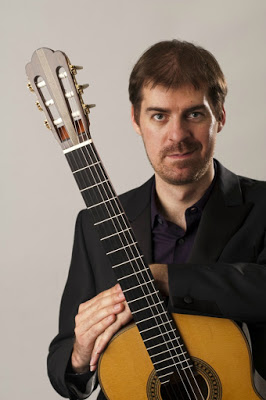 group. He is our rhythmic motor with a beautiful sense of voicing around the kit. He makes ideas come alive. It’s obvious why he is regarded as one of Scotland’s very best drummers.”
group. He is our rhythmic motor with a beautiful sense of voicing around the kit. He makes ideas come alive. It’s obvious why he is regarded as one of Scotland’s very best drummers.”
When asked why he named this ensemble Ritmata, he defines, “Ritmata simply means ‘rhythmic’ and is also the name of a ’70s solo guitar piece by Brazilian composer Edino Krieger that I played a lot in the ’90s.”
“Of all my ensembles,” he deems, “Ritmata is the most pumped up and steroidally muscular. Largely that’s coming from the drums. The classical guitar doesn’t necessarily naturally sit with drums, piano, and bass, so I aimed to create a body of work to explore and expand the possibilities for this lineup. I see the group as my musical laboratory. If I’m working with, for example, singers from the mystical Bengali Baul tradition, that lends the suggestion of a certain direction that I can then choose to go with or subvert. Ritmata, on the other hand, is very much a blank canvas.”
He maintains, “Musicians playing with me need to be able to step out of their comfort zone and, to some extent, reinvent themselves to be able to meet the demands of the music. That’s certainly what I have to do. The music always points to where, deep down, I want to go and what I want to be, not necessarily what I am.”
“On the Tàradh album,” Thacker examines, “I’m drawing on inspirations from Native America, medieval alchemy, Indian music and philosophy, Sephardic music, flamenco, Moroccan traditions, and Ancient Roman mythology. I’m wired to seek new challenges. New and disparate inspirations create new challenges.”
“In my writing,” he guarantees, “I know that the pieces that I’m barely conscious of writing are going to be my best.”
He points out, “‘Quadriga in 5’ is the biggest and most complex piece on the Tàradh album (also nominated for the Ivors composer Awards, the most prestigious in the UK), but I don’t remember making any conscious decision when writing it. I barely remember writing it. I almost feel like I just discovered it in my subconscious and had a mysterious ability to write it down. And when I listen to it, it just sounds like me. Not like a guy with lots of influences throwing them all together. There are no joins. It just is. An organism, an entity, a being. When there is no conscious thought, you can simply access your essence.”
Accessing the essence of his imagination has afforded Thacker opportunities to take the music off on tangents, to improvise and keep the compositions developing naturally. “Improvising as a solo guitarist is something I’ve done from my first steps on the instrument,” he purports. “However, improvising solo publicly on stage I started doing with the advent of Ritmata, in a sort of taksim or alap free time exploration.”
He perceives, “‘Consus’ on Tàradh is a great recent example of the unusual means I developed. That style is very much my trademark. There’s always one piece on every album that develops this approach. On Tàradh, three pieces feature collective improvisation. It is a very different vibe from a soloist being supported. There’s something very organic and tumultuous about it. An orderly crowd can turn into a vicious mob at any moment and back again. One idea sets off a chain reaction. For it to work, you need to commune. I like the balance it can bring to a piece, with its unpredictability. Too many soloist solos often bore me.”
One soloist who does not bore Thacker is flamenco vocalist Angeles Toledano. She performs on the track “Muero Yo De Amor” from Tàradh. His choice to have her sing on the recording is part of his nature to keep his music diverse as he preludes, “Every album of mine has to include a track that confounds any feeling that someone might have of being able to pigeon hole or see the horizon of what we’re capable of. Just when the thought might be coming ‘oh, I got this sussed out,’ then a track comes along that emphatically demonstrates the contrary.”
He outlines about the track, “‘Muero Yo De Amor,” was recorded by the famed singer Haim Effendi (1853-1938), from Edirne in present-day Turkey in 1907. It is not documented in any other source. As far as I’m aware, it has lain in obscurity until now since 1907. Reimagining existing tradition-based material and original compositions are two strands of my work that nourish and give impetus to each other. It struck me that a flamenco singer embodying ‘Muero Yo De Amor’ could be very powerful, as there are clear correlations and parallels between the music (highly melismatic vocal styles, Middle Eastern pitch shadings) and histories (maintaining a distinct culture, discrimination, and persecution) of the Gitanos and Sephardi.”
“Weeks of tireless video trawling,” he deciphers, “culminated in coming across the remarkable voice of Ángeles Toledano, one of Spain’s very finest young cantaoras, who I brought from Córdoba to Scotland for this recording. One rehearsal and the next day, we were in the studio. She sings it stunningly. One of the verses says: ‘I searched for you with passion / I went through mountains with pain / At the end I could hug you / Pleasure is everything, my soul.’ The intro is called Egzortasyon (exhortation in Ladino, the Judeo-Spanish language). It’s pretty fierce. Conlon Nancarrow meets Paco De Lucia and James Brown in a hurricane,” he chortles.
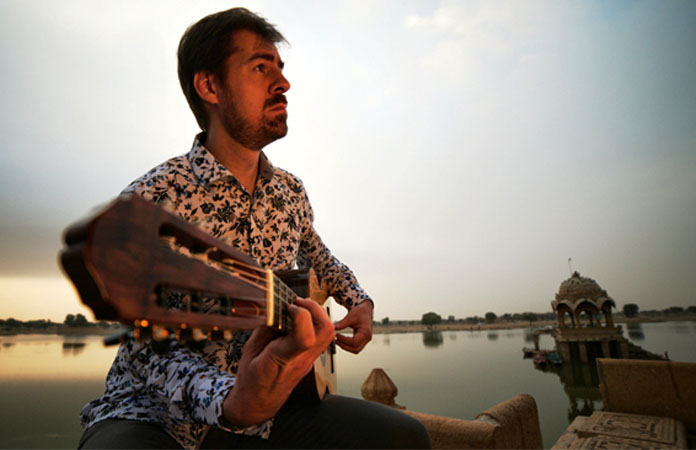 “My compositions are pretty specific,” he extrapolates, “I’d say perhaps unusually so for music in this sphere. I often like to harness the tension between hyper composition and total freedom in open sections of improvisation or improvisation toward a certain goal, a cataclysmic climax, for example. There’s certainly leeway in things like drum voicing. Parts are pretty detailed.”
“My compositions are pretty specific,” he extrapolates, “I’d say perhaps unusually so for music in this sphere. I often like to harness the tension between hyper composition and total freedom in open sections of improvisation or improvisation toward a certain goal, a cataclysmic climax, for example. There’s certainly leeway in things like drum voicing. Parts are pretty detailed.”
“I aim for every piece to be my new best,” he vows. “Over the years, that ability to go beyond the thinking and conscious has deepened. The handling of long forms and multiple layers has developed massively. I keep challenging myself to compose in different ways. I became obsessed with the backward recording (as I heard on Jimi Hendrix’s Are You Experienced, for example). I wrote two pieces using it. The second for up to 25 guitars, seven cellos, multi-tracked voice, and field recorded sounds (on the Karmana album).”
He reveals, “I’ve written for Indian instruments like khomok, mridangam, and kanjira. Improvisation has also been a crucial part of what I do and has evolved similarly to my composing. My compositions, of course, always start from improvisations.”
He takes a closer look at the path that led him to Indian instruments, noting that it is when he found the elements he looks for in a composition to make it great. “I commissioned several composers earlier in my career, including Terry Riley for my Indian group Svara-Kanti’s first album Rakshasa. His piece got me thinking about what makes a great work and a great composer.”
“My Svara-Kanti community,” he asserts proudly, “now spans four lineups expanding on Hindustani, Carnatic, Baul spiritual and Punjabi folk influences. Karmana is a cello/guitar duo. Songs of the Roma adds a Romany exponent on voice/violin.”
He imparts, “You can have technically perfect pieces where all the right things happen at the right times but which don’t leave any emotional imprint on you. You can have pieces that are perhaps flawed in a formal compositional sense but which move you. Why? I don’t have or even seek a rationale for why that is. I do know that basic material and ideas sometimes just have extra magic. Terry’s ideas certainly do.”
“Every album for me,” he ponders, “is a statement and a snapshot, but also a summation of everything up to that point. It is the legacy. There’s my transformation of a thirteenth-century Spanish miracle song on Tàradh. I very much see that as a meeting mind and spirit across seven centuries.”
“My goal,” he determines, “is to create music that is worthy of surviving that long, and still retaining its power to move. Anti-fashion. I hope it encapsulates that universality and connection to the soul that makes it future proof. I think this music is perfect for the jazz festival circuit. I just toured India solo. I can see it being very successful there.”
Success for guitarist Simon Thacker is not systematic. First and foremost, he measures his success by composing music that comes from within himself, guided by his imagination and subconscious thoughts. Second, he measures the success of his music by seeing which audiences resonate with it. Where his audience will be from is as much a mystery as to where the concepts for his compositions come from and go. The mystical aspect of improvised music resonating with audiences is it is entirely unpredictable. Thacker will continue to keep audiences guessing as to what style of music he plays, and audiences will keep him guessing as to who will resonate with his music.
About Susan Frances:
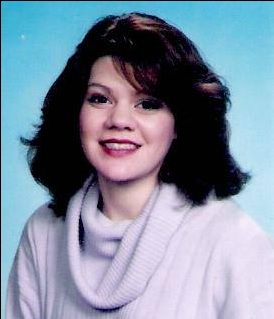 Born in Brooklyn, New York and raised in eastern Long Island, I always enjoyed writing and made several contributions to my high school literary magazine, The Lion’s Pen. Influenced by writers of epic novels including Colleen McCullough and James Clavell, I gravitated to creative writing. After graduating from New York University with a BA in Liberal Arts, I tried my hand at conventional jobs but always returned to creative writing. Since 1998, I have been a freelance writer and have over three thousand articles to various e-zines including: Jazz Times, Blogcritics, Yahoo Voices, Goodreads.com, Authors and Books (books.wiseto.com), TheReadingRoom.com, Amazon.com, Epinions.com, Fictiondb.com, LibraryThing.com, BTS emag, BarnesandNoble.com, RomanticHistoricalReviews.com, AReCafe.com, Hybrid Magazine, and BookDepository.com. In 2013 and 2014, I was a judge in the Orange Rose Writing Competition sponsored by the Orange County chapter of the Romance Writers of America located in Brea, California.
Born in Brooklyn, New York and raised in eastern Long Island, I always enjoyed writing and made several contributions to my high school literary magazine, The Lion’s Pen. Influenced by writers of epic novels including Colleen McCullough and James Clavell, I gravitated to creative writing. After graduating from New York University with a BA in Liberal Arts, I tried my hand at conventional jobs but always returned to creative writing. Since 1998, I have been a freelance writer and have over three thousand articles to various e-zines including: Jazz Times, Blogcritics, Yahoo Voices, Goodreads.com, Authors and Books (books.wiseto.com), TheReadingRoom.com, Amazon.com, Epinions.com, Fictiondb.com, LibraryThing.com, BTS emag, BarnesandNoble.com, RomanticHistoricalReviews.com, AReCafe.com, Hybrid Magazine, and BookDepository.com. In 2013 and 2014, I was a judge in the Orange Rose Writing Competition sponsored by the Orange County chapter of the Romance Writers of America located in Brea, California.


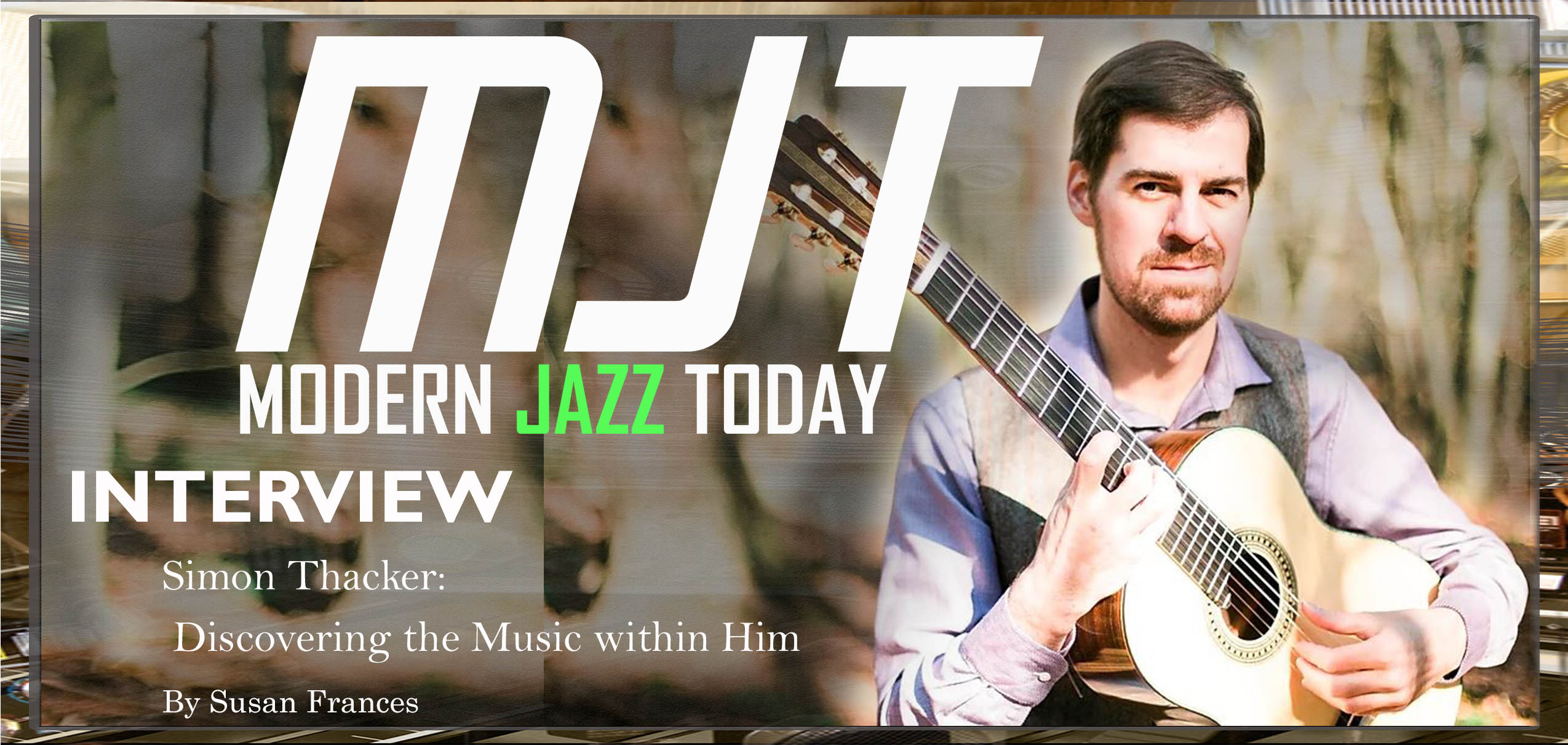


No Comments